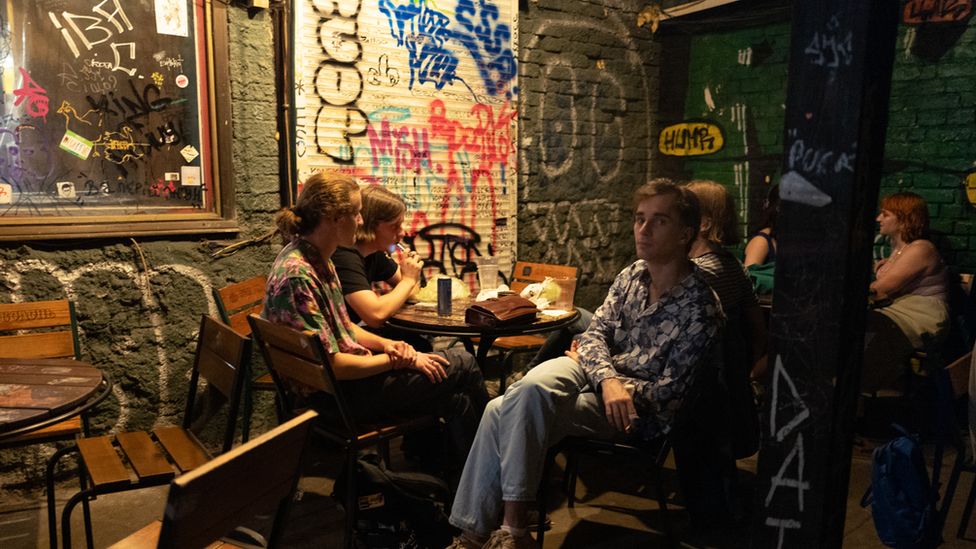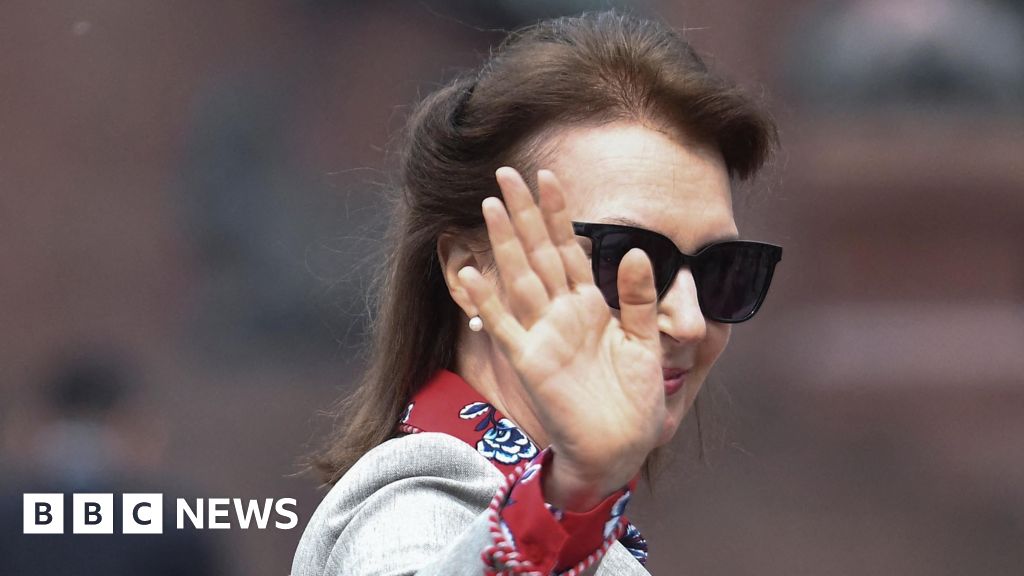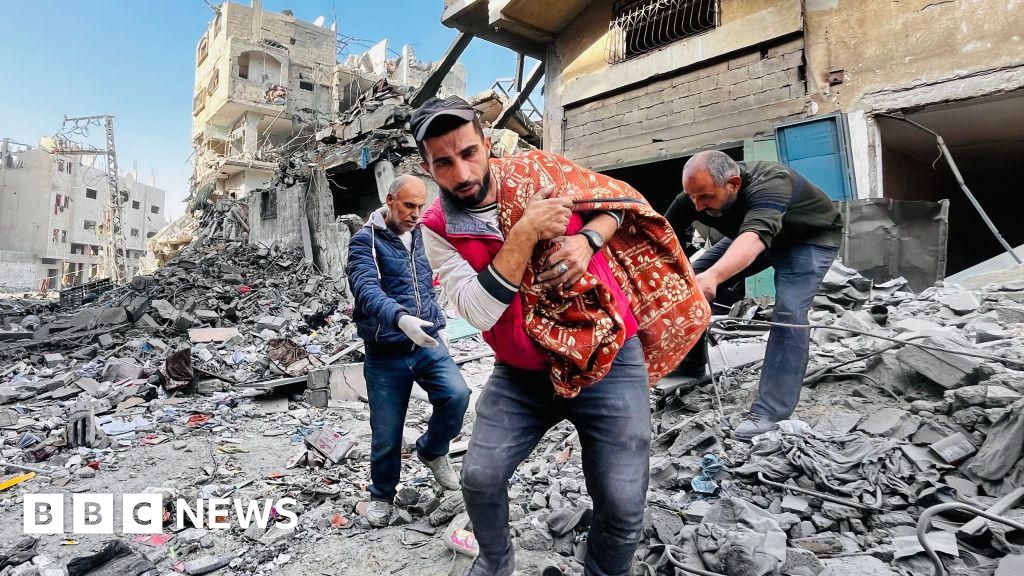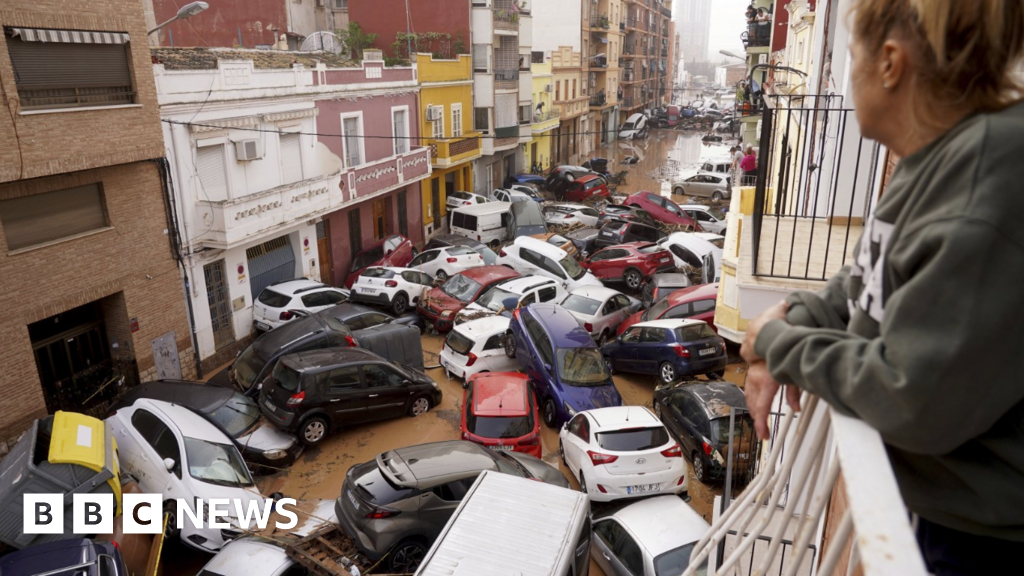ARTICLE AD BOX
 Image source, BBC/Rob Taylor
Image source, BBC/Rob Taylor
Ukrainians have changed every part of their lives after Russia's full-scale invasion - including nights out
By Toby Luckhurst
BBC News, Kyiv
Last orders at 10pm. A midnight curfew. Russian air raids.
Russia's full-scale invasion of Ukraine began 18 months ago, and Ukrainians have had to change every part of their lives to adapt to the war - that includes their weekends.
So: how does a Friday night out work in a war zone? I went on a mission to find out.
Less than 12 hours earlier, a Russian missile attack had set off air raid alarms around Kyiv.
The city's air defences managed to fend off the assault without any casualties - this time.
Now, at 8pm, ABO is starting to fill up. It's Friday night, and groups of young people have gathered here to play table tennis, drink beers, and relax with friends to a drum and bass soundtrack.
Amir, Borys and Oleh founded ABO last August as a record shop. It's since grown into a bar, club, and hang-out spot- a space for artists to relax and gather in war time.
BBC
When the war started, me and my friends decided to open a record store
"Culture really was struggling," Amir says. "Our neighbours are destroying our country daily. There's no time to wait until it's finished to rebuild, you know? It's time to do something right now."
Borys says people are definitely starting to go out more now in Kyiv.
"It's so obvious now for us that the war will last for a very long time," he says. "We try to lead normal lives if possible, but also not forget about what's happening in our country."
Under war time rules here in Kyiv, all bars, clubs and restaurants must shut by 10pm. There's no sale of alcohol after that time either.
Authorities take the ban seriously. In June, police launched a three-day campaign to stop anyone caught breaking the law, and found 14 establishments operating past the 10pm cut off.
"The managers of the institutions were brought to administrative responsibility," a police statement said.
At 9pm, ABO is getting busier. More and more groups are arriving and gathering at the bar to get a drink, and the DJ has turned up the music.
But mindful of the 10pm restrictions, we move on to the next bar: Vernissage. It's a well-known hot spot in Kyiv, grungy and graffitied.
Image source, BBC/Rob Taylor
Image caption,Ilia (centre) and his friends enjoying a Friday night at Vernissage
"This is the best place for a party," says IIia, a student from Kharkiv, whom we met at the bar. But he warns us: "If you hear the air raid siren, please very fast go to the shelter."
He and his friends are sitting at a table outside, smoking, laughing and singing.
The war-time restrictions don't seem to have dampened their night out. The whole group say the metro is the fastest way to get home - taxis are hard to find, and far too expensive at that time. But other than that, they say they've adapted well to the rules.
At 9.45pm, a bartender announces Vernissage is closed. People quickly and happily get up and head for the metro.
Yaroslav explains that they all respect the rules.
"We have curfew at midnight, so, we must get home. We don't want to break any rules. We're responsible citizens."
Image source, BBC/Rob Taylor
Image caption,"We don't want to break any rules," Yaroslav says
Around the corner, we see crowds at other bars trying to grab one last drink before 10pm.
We manage to get inside one place minutes before closure. But the bartender and the last customers are not happy to see BBC journalists holding a microphone.
We quickly step back outside on to the street - and moments later, we are joined by the police.
The officers walked into the bar as the last customers scurried out. They left after a hasty word with the bartender, and as they walked out, the shutters came down.
Kostiantyn, having a smoke outside, was not bothered. "It's not a movie like Catch Me If You Can," he says. The closure rules are strict, he says, but people are happy to comply.
Bars, clubs and restaurants have to shut at 10pm but curfew - when people have to be off the streets completely - isn't until midnight here in Kyiv.
Kostiantyn invites us back to his apartment, along with his friend Diana, and cracks open some sparkling wine bottled in Bakhmut - the Ukrainian city of little strategic value Russia eventually captured this year, after months of grinding fighting that cost them thousands of soldiers.
Image source, BBC/Rob Taylor
Image caption,Kostiantyn (left) and Diana pour out sparkling wine bottled in Bakhmut
"There's actually an entirely new culture emerging of parties," he says.
"People don't stay overnight, because of the curfew, so everything is during day time.
"People don't drink so much. It's interesting how this culture is changing."
Kostiantyn and Diana are originally from the eastern city of Donetsk, in the Donbas region. After 2014, when Russia seized Crimea and Russian-backed militants seized control of parts of the Donbas, he moved to Mariupol, and eventually on to Kyiv. In the last decade, Russia has pushed them further and further west.
As a result, Kostiantyn says he sees many positives from curfew. As someone who had to flee the east of the country, and who has experienced nine years of war, he called for more awareness of people's trauma.
"The crime level is low and I enjoy silence," he says. "I still believe people have the right to party but I think... it should be quietly, because people who come from the front line, who have experiences like that, we're sensitive."
Additional reporting by Svitlana Libet and Rob Taylor

 1 year ago
14
1 year ago
14








 English (US)
English (US)